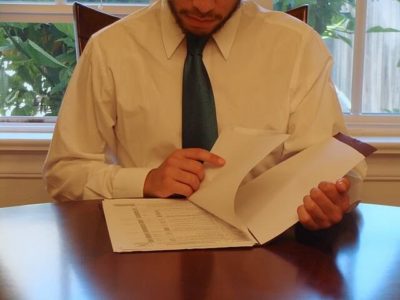You have carefully typed up your cover letter, proofread your resume and mailed your job applications to a bunch of different employers. Then, a couple of days (or weeks or even months) later, the unthinkable happens: you are called in for an interview.
Interviews can be nerve-wracking, so it is important to feel prepared by the time you walk in that door – or, in the case of a phone interview, by the time you pick up the phone. Our list of dos and don’ts will get you one step closer to your dream job or internship.
DO dress professionally. No employer wants to hire sloppy employees. While dress codes depend on the industry, the rule of thumb is to dress on the conservative side. Consider removing any facial body piercings and covering up large tattoos. Keep your makeup to a minimum and stay away from the perfume.
DO NOT be rude to anyone in the office before or after your interview. You never know who your interviewer might talk to after you leave the office. “If you do get the job, you wouldn’t want to have started off on the wrong foot with anyone in the office,” says Amanda DeJesus, a senior at Taylor University, Indiana.
DO research the company. Show interviewers that you are actually interested in their company specifically. Figure out what the company’s vision and goals are and what sets it apart from its competitors.
DO NOT use complex vocabulary that you would not normally use when answering an interview question. While you want to prove that you are educated and professional professional, the interviewer wants to talk to you, not to a dictionary.
DO think about the kind of questions that you might be asked and think about what you might say. Consider writing down a list of questions and bringing them with you. The more prepared you are, the better.
DO NOT be cocky. You should be confident, but acting like you are too good for the company will not help your prospects in the least. “From experience, I know the secret to a good interview is to act confident but like you’re still very interested in getting the job,” says Tiffany Gilberti, a senior at Syracuse University.
DO bring extra copies of your resume and anything else you think your interviewer might want to see, such as writing samples.
DO NOT, under any circumstances, be late. If there is an emergency, call as soon as you can, explain the situation and apologize.
DO send a thank you letter afterwards. Your interviewer will appreciate it. And hey – it could make all the difference. “Sending a thank you note has gotten me more than one job in the past!” says Alyssa Arminio, a recent graduate from Ithaca College.
Photo by Catherine Finsness > Sophomore > Psychology > The George Washington University



















